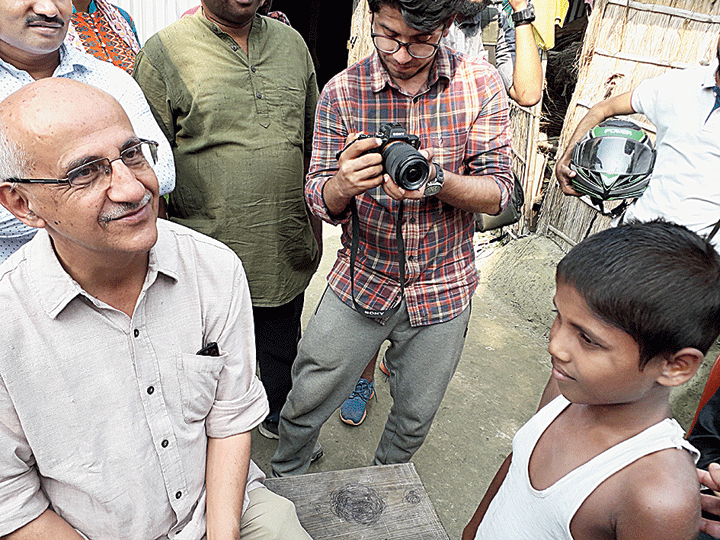Peace activist and writer Harsh Mander, who has compared children — whose parents have committed suicide after being excluded from the NRC or are declared doubtful voters/foreigners and lodged at detention centres — to victims of catastrophe, has decided to convert two schools to residential ones in Assam’s Barpeta district to prevent them from becoming child labourers.
Mander, along with fellow peace activists from different walks of life and from across the country visited the families — who are separated from their kith and kin — as part of the current tour of the peace initiative Karwan-E-Mohabbat in lower Assam’s Barpeta and Bongaigaon districts.
While visiting the family of Joynal Abedin Ali, a daily wage labourer who had allegedly committed suicide after being excluded from the NRC on July 7, Mander said: “There are possibilities that Ali’s children may end up as child labourers in other parts of the country because of economic marginalisation.”
Mander, a former IAS officer and monitor for minorities with the National Human Rights Commission, told this correspondent that infrastructure was already there in the two schools and after getting permission from the school authorities, they would convert those into safe residential schools for such children, especially girls.
He said the two residential schools, including one for girls, would be set up with Rainbow Foundation India, a Hyderabad-based organisation, which provides education to destitute children at residential schools in different cities of the country.
Mander added that he along with other peace activists would work out the details before they leave Barpeta.
“Of all people who have suffered due to exclusion of their names from the NRC, the children are the worst sufferers. If one parent of a child is declared a ‘foreigner’, their progenies will lose legal status and there will be no legal recourse. The question is what will happen to the children whose parents have been declared ‘foreigners’? The second aspect is if a parent of a child is at a detention centre and another commits suicide, there will be unfathomable despair and destitution. We think of how to reduce the sufferings of such children. They may drop out of schools and deprived of education. We want to prevent this and do something,” Mander said.
Amitabh Basu, a retired chief scientist with the CSIR-National Physical Laboratory of India and now a social worker who teaches at one of the residential schools run by the Rainbow Foundation in New Delhi, accompanied Mander on the tour.
Basu said: “The idea of setting up two residential schools in Barpeta district is a noble one. It depends on proper infrastructure. Work will be done in tandem with local units of child welfare care. The children should not be left out of education and they have the right to a better future.”










